South America Newsletter July 2024
This month we bring you news from Argentina, Bolivia, Brazil, Ecuador, Suriname, and Venezuela.
Highlights are:
- Amnesty has raised an alarm about the proliferation of legal initiatives to curtail the work of civil society organisations in Latin America and which seriously threaten the efforts of these organisations to promote and defend human rights in the region.
- In Argentina, a violent police operation during protests on 12 June resulted in 33 people being arbitrarily detained and charged with several offences, including attacks on constitutional order and democratic life. Amnesty International has issued an Urgent Action urging the prosecutor to immediately drop the charges against them.
- Following reports of a failed coup attempt in Bolivia, UN Human Rights Chief Volker Türk expressed deep concern at the news, calling on Bolivian authorities, including the armed forces, to ensure full respect for human rights under all circumstances
- El Pais (English version) reports on the findings of the Gamboa case in Brazil where three police officers are charged with the killing of three young Black individuals during Carnival in 2022.
- Yuly Velásquez, President of FEDESPAN (Federation of Artisanal, Environmental, and Tourist Fisherfolk of Santander Department), received AI Germany’s human rights award on 4 June.
- Amnesty has submitted a briefing to the UN Committee against Torture setting out its main concerns with regard to the current crisis within Ecuador’s prisons.
- There will be a new Amnesty report this month focusing on demanding justice and accountability for the victims of the military and police repression of the 2022/23 Peruvian protests.
- According to a report from Dialogue Earth, Suriname is the only remaining country in South America that has yet to enshrine Indigenous land rights in its constitution.
- The United Nations published an update denouncing the growing restriction of civil liberties in Venezuela, especially before the election later this month.
REGIONAL
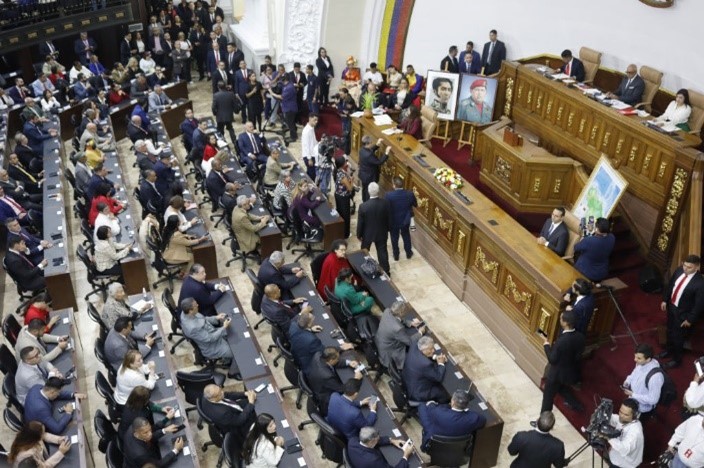 Amnesty has raised an alarm about the proliferation of legal initiatives to curtail the work of civil society organisations in Latin America and which seriously threaten the efforts of these organisations to promote and defend human rights in the region. Taking cues from questionable, regressive and authoritarian measures that certain countries in the region have adopted, the parliaments of Paraguay, Peru and Venezuela are currently considering passing laws that would arbitrarily restrict and unduly interfere with civil society organizations, associations, and groups. These measures threaten to silence criticism, compromise the pursuit of justice and undermine progress on human rights.
Amnesty has raised an alarm about the proliferation of legal initiatives to curtail the work of civil society organisations in Latin America and which seriously threaten the efforts of these organisations to promote and defend human rights in the region. Taking cues from questionable, regressive and authoritarian measures that certain countries in the region have adopted, the parliaments of Paraguay, Peru and Venezuela are currently considering passing laws that would arbitrarily restrict and unduly interfere with civil society organizations, associations, and groups. These measures threaten to silence criticism, compromise the pursuit of justice and undermine progress on human rights.
ARGENTINA
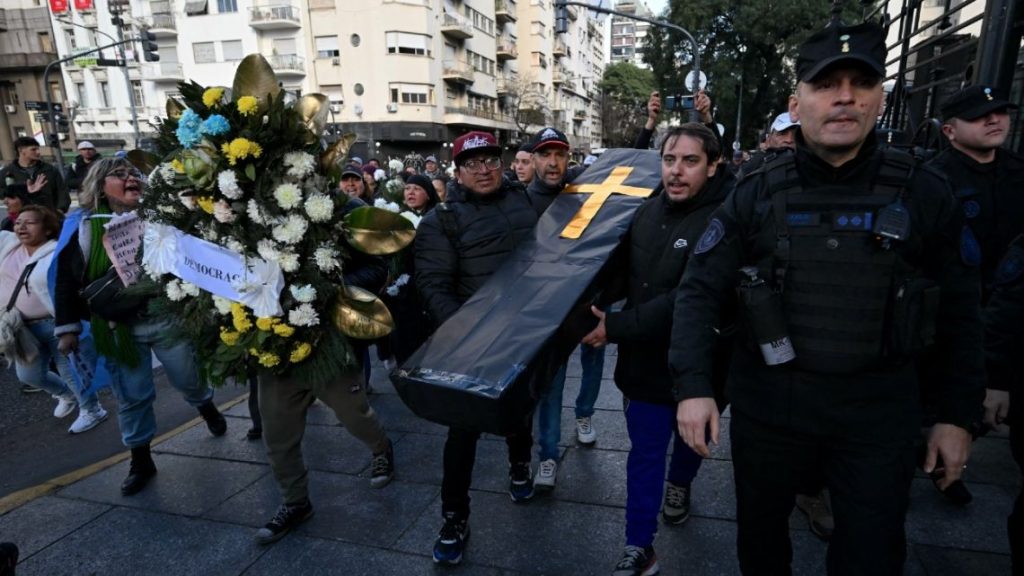
Demonstrators carry a coffin and a sign reading “democracy” in front of the National Congress Building, Buenos Aires as the Senate voted through the new economic reform package.
During 2024 large-scale demonstrations have erupted protesting against fiscal cuts and the undermining of human rights. Also some very concerning regulations have been implemented criminalizing protesters and permitting the unlawful use of force against them. A violent police operation during protests on 12 June resulted in 33 people being arbitrarily detained and charged with several offences, including attacks on constitutional order and democratic life. Amnesty International has issued an Urgent Action urging the prosecutor to immediately drop the charges against them.
The Urgent Action calling on authorities to drop the charge of “aggravated damage” against Pierina Nochetti in now on the AIUK site. Pierina Nochetti, a lesbian human rights activist, is facing criminal charges of “aggravated damage” for allegedly painting graffiti in protest questioning the disappearance of a young trans man in the city of Necochea, Argentina. She is facing a sentence of up to 4 years in prison. It appears to be an unnecessary and disproportionate restriction on the right to freedom of expression.
Amnesty International’s 2023 report on Argentina highlighted that gender-based killings continued unabated and impunity persisted:- 308 gender-based killings were recorded in 2023, 62% of them in domestic settings. At the beginning of June tens of thousands of demonstrators took to the streets for the annual “Ni Una Menos” march against gender violence. Since then it was announced the government will dissolve a government department dedicated to halting gender violence. The department oversees the emergency hotline and programme assisting those at risk of gender violence.
The United Nations High Commissioner for Human Rights, Volker Türk, warned that recent Argentine government measures run the risk of undermining the protection of human rights. At the Human Rights Council in Geneva, he highlighted “cuts to public spending particularly affecting the most marginalized, the announced closure of state institutions dedicated to women’s rights and access to justice.” He urged the Argentine authorities “to place human rights at the centre of their formulation of policies in order to construct a more inclusive society.”
BOLIVIA
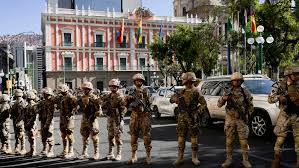 Following reports of a failed coup attempt in Bolivia, UN Human Rights Chief Volker Türk expressed deep concern at the news, calling on Bolivian authorities, including the armed forces, to ensure full respect for human rights under all circumstances, protect the constitutional order and maintain peace. He urged the authorities to conduct a thorough and impartial investigation into allegations of violence and reports of injuries, for those responsible to be held to account and those detained in relation to the events to receive fair trials.
Following reports of a failed coup attempt in Bolivia, UN Human Rights Chief Volker Türk expressed deep concern at the news, calling on Bolivian authorities, including the armed forces, to ensure full respect for human rights under all circumstances, protect the constitutional order and maintain peace. He urged the authorities to conduct a thorough and impartial investigation into allegations of violence and reports of injuries, for those responsible to be held to account and those detained in relation to the events to receive fair trials.
BRAZIL
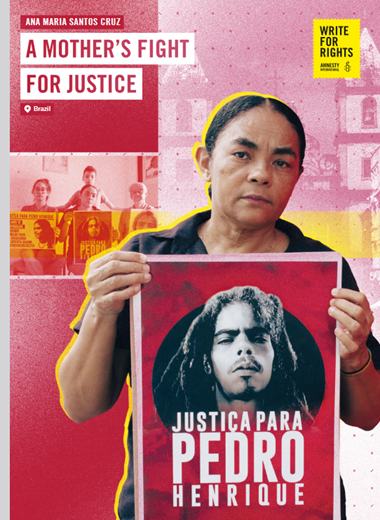
Mother of Pedro Henrique, human rights defender, killed by police 27.12.2018
El Pais (English version) reports on the findings of the Gamboa case where three police officers are charged with the killing of three young Black individuals during Carnival in 2022. ‘The Prosecutor’s Office maintains that the agents killed the men in cold blood, planted weapons on them, manipulated the crime scene and threatened witnesses… In another move common to cases of police violence, the police pretended that the victims were alive and took them to hospital, where they were certified dead, according to the indictment.’
Human Rights Watch denounces the mass harvesting of personal photos of Brazilian children to create artificial intelligence tools without their consent. ‘In turn, others are using these tools to create malicious deepfakes that put even more children at risk of exploitation and harm.’ These children are named and span the entirety of childhood from birth onwards. ‘Malicious actors have used LAION-trained AI tools to generate explicit imagery of children using innocuous photos, as well as explicit imagery of child survivors whose images of sexual abuse were scraped into LAION-5B.’
CHILE
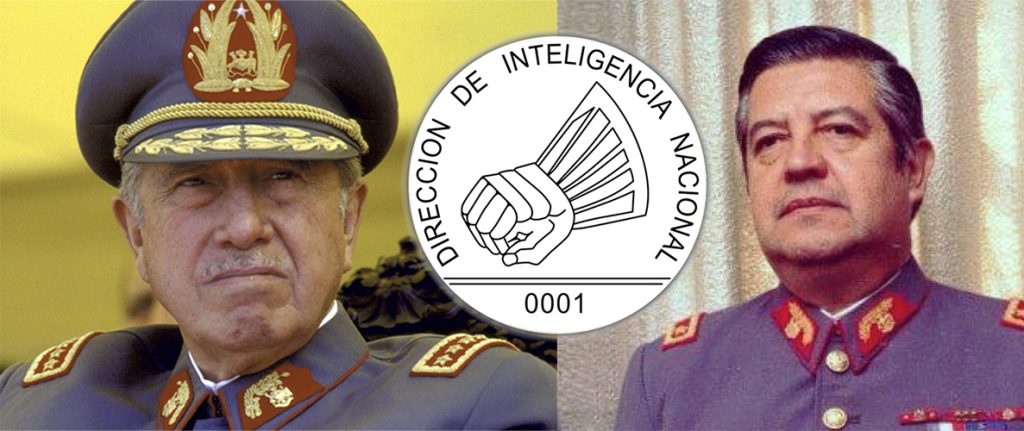
Former President Augusto Pinochet and Head of DINA Manuel Contreras
June 18 marked the 50th anniversary of the creation of the National Intelligence Directorate (DINA). The DINA was created as a military organization outside the military chain of command; it was empowered to operate as a secret police force to monitor, arrest, imprison and eliminate anyone considered an opponent of the regime. The US National Security Archive has just published a curated collection of declassified CIA, DIA, FBI and State Department documents, along with key Chilean records, that reflect the history of DINA’s horrific human rights atrocities and terrorist crimes.
Chilean legislators must respect international human rights standards concerning security, said the Inter-American Commission on Human Rights and the Regional Office of the United Nations High Commissioner for Human Rights for South America. They are concerned about moves in the Chilean Congress to pass bills that might reduce accountability and favour impunity for law enforcement officers. In 2023 Chile introduced the ‘Nain Retamal Bill’, which increased the penalties for crimes committed against members of the Carabineros and authorizes the disproportionate use of force.
COLOMBIA
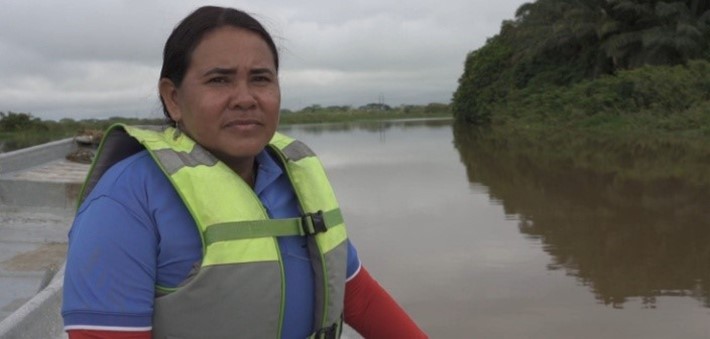 Yuly Velásquez, President of FEDESPAN (Federation of Artisanal, Environmental, and Tourist Fisherfolk of Santander Department), received AI Germany’s human rights award on 4 June. The UN’s Special Rapporteur on the Rights of Freedom of Peaceful Assembly and Amnesty’s Secretary General were at the ceremony. FEDESPAN members have been targeted by armed groups and have been the subject of several Urgent Actions issued by Amnesty in recent years. You can still take action here. Please send copies of your email to Roy Barreras, Colombian Ambassador to the UK, elondres@cancilleria.gov.co
Yuly Velásquez, President of FEDESPAN (Federation of Artisanal, Environmental, and Tourist Fisherfolk of Santander Department), received AI Germany’s human rights award on 4 June. The UN’s Special Rapporteur on the Rights of Freedom of Peaceful Assembly and Amnesty’s Secretary General were at the ceremony. FEDESPAN members have been targeted by armed groups and have been the subject of several Urgent Actions issued by Amnesty in recent years. You can still take action here. Please send copies of your email to Roy Barreras, Colombian Ambassador to the UK, elondres@cancilleria.gov.co
The International Commission on Human Rights of the OAS (Organisation of American States) issued its first report on Colombia since their visit in April. The report is damning. A quick summary of its main findings are:
>Colombia is a country characterized by extreme inequality, discrimination and poverty. These factors are at the roots of the armed conflict. The weak or non-existent presence of the State, particularly in regions where indigenous peoples, peasant communities and people of African descent live, has allowed a reconfiguration of the armed conflict. Many territories occupied before the 2016 Peace Agreement by the FARC are today being targeted by armed groups that want to control the illegal economy (drugs, mining, human trafficking).
>The slow implementation of the 2016 Peace Accord with FARC guerrillas is the result of the fragmentation of the institutions responsible for its implementation and poor coordination between these agencies at the centre of government. Political polarization makes it difficult to generate a consensus on the measures required to provide access of parties to opportunities, productive lands and economic resources.
>The territorial control by armed groups has generated situations where communities are forced to resist, be forcibly confined or are forcibly displaced. In the case of indigenous and Afro-descendant communities, this risks a loss of cultural identity and survival. These armed groups have taken advantage of the humanitarian crisis arising from the massive flow of Venezuelans, Haitians, Ecuadorians and migrants from other countries to exploit human trafficking, sexual exploitation and other contemporary forms of slavery.
>Gender-based violence continues to be a critical problem. Women, particularly indigenous, Afro-descendant, peasant, signatories of the Peace Agreement, and LGBTQ+ people continue to experience sexual violence in rural areas and areas controlled by armed groups. Women and LGBTQ+ people continue to be excluded from equal participation in the peace processes and face obstacles in access to education, land and productive projects.
ECUADOR
Amnesty has submitted a briefing to the UN Committee against Torture setting out its main concerns with regard to the current crisis within Ecuador’s prisons. The briefing states that, despite important recommendations made by the Committee in its previous review, the situation in Ecuador’s prisons is as concerning as ever, with few structural improvements and a sustained crisis of deaths in custody as well as multiple reports of torture and other ill treatment of persons deprived of liberty.
PERU
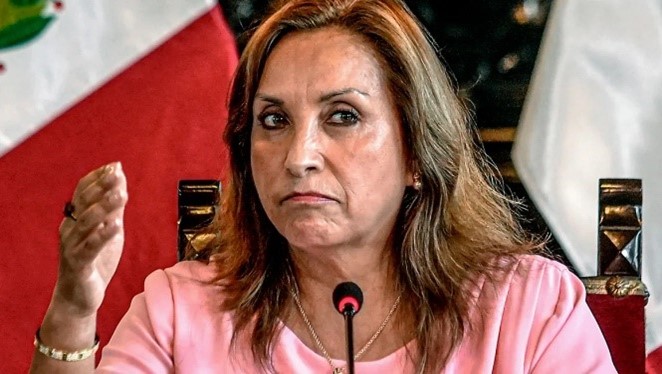
President Boluarte
Watch out for a new Amnesty report this month focusing on demanding justice and accountability for the victims of the military and police repression of the 2022/23 protests. Meanwhile The International Federation for Human Rights and Peru’s Association for Human Rights have made a submission to the International Criminal Court (ICC) accusing Peru’s President Dina Boluarte and members of her government of crimes against humanity in connection with the deaths of 49 people during the protests. It has called on the ICC to open a preliminary examination against Boluarte and members of her government regarding the allegations.
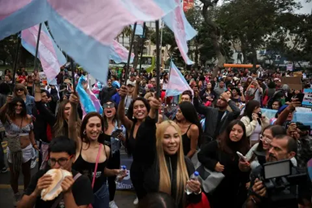
Peruvians protest in front of Peru’s Ministry of HealthHuman Rights Watch report that the Peruvian Ministry of Health has clarified that trans identities are not mental health conditions. This represents a step back from a presidential decree in May that was heavily criticised by Peruvian human rights organisations and activists.
SURINAME 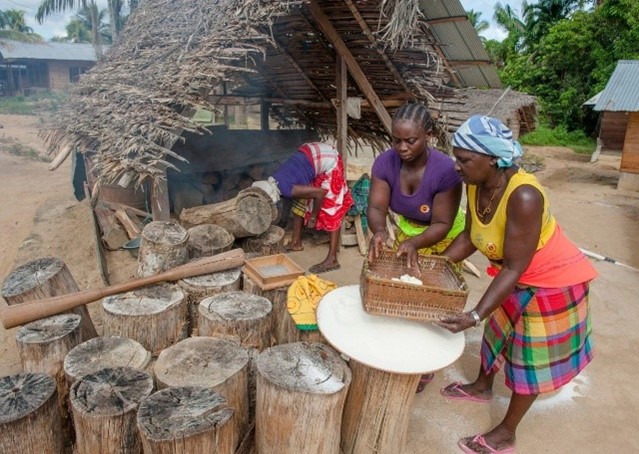
According to a report from Dialogue Earth, Suriname is the only remaining country in South America that has yet to enshrine Indigenous land rights in its constitution. This is despite a landmark ruling handed down by the Inter-American Court of Human Rights in 2007 in favour of the Saamaka tribe, which filed a case against the state alleging that concessions were issued in their homelands without their consent.
VENEZUELA
The United Nations has denounced the restrictions if civil liberties in Venezuela, insisting on the importance of constructive dialogue between the government institutions and wider society, as well as demanding that the government take measures to improve the health, education, and food provisions for Venezuelans. The report highlighted the growing number of arbitrary detentions and threats against figures critical of the current government.
Edmundo Gonzalez Urrutia, the opposition’s agreed candidate for the Venezuelan presidential election, continues to campaign ahead of voting this month. Gonzalez has been endorsed by Maria Corina Machado, the popular opposition figure who was barred from running because of allegations which the state has not yet evidenced. Many expect that the vote will not be free or fair.
Venezuelan residents in Asturias have gathered in los Jardines de la Reina calling on the Venezuelan government to respect human rights and political liberties.
All the best,
South America Team – Richard Crosfield (Colombia and Brazil), David Rogers (Argentina and Chile), James Baird (Venezuela) and Graham Minter (rest of South America). And please don’t forget that you can follow us on our Facebook page and Twitter.
